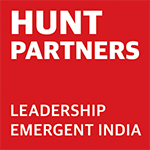Charu GulatiExecutive Director – Human Capital Management of Everstone Group
- Location: Mumbai
- Total work experience: 24 years
Charu is responsible for the end-to-end Human Resource Business partnering for India. In her role, she aligns our HR initiatives and functions with the organizations strategy and objectives. She overlooks the entire function which includes recruiting, onboarding, enhancing staff performance, supporting employee development, planning strategic HR initiatives, HR communications and maintaining employee relations. Charu also looks after wellness and employee health initiatives. She adds to the overall business strategy by providing HR solutions for our various businesses in India.

HR STRATEGY

1. HR drives the business, what is your take on this? How does it influence your HR strategy?
HR has seen a huge shift over the years, from transactional to strategic. Today, HRs are increasingly playing the role of business enablers – we are the internal entrepreneurs building teams, designing processes, creating infrastructure and fueling growth. In this context, HR strategy now focuses more on business outcomes rather than functional/HR outcomes. Hence, it is extremely important for today’s HR professionals to have a deep understanding of their business, customers and industry.
2. Do you think HR has succeeded in becoming a strategic partner for business? What could be the areas of improvement?
Yes, but with a caveat of ‘Still work in progress’. It depends a lot on the type, stage, size and nature of business as well. The manufacturing sector may still need transactional HR while the service sector has started adopting HR as a strategic partner. On the other hand, the demand for HRBP is growing by the day, at startups and in the knowledge sector. This will always play as a Yin and Yang concept which needs to be exercised and leveraged fully.
HR side: One of the first things that need improvement, or rather an upgrade, is the business acumen and advocacy skills of HR professionals. Speaking the language of business, understanding their challenges, gathering data and using it to draw the right attention are things that will immediately change the way businesses look and deal with our function.
Business side: Vision and willingness of the CEO or the Business Head to partner with HR can make all the difference. There is a dire need for a shift in the perspective of business leaders towards their HR counterparts. This is happening slowly but surely and, in today’s dynamic talent climate, there is very little choice but to start leveraging the insights, inputs and advice of their HR counterparts.
TALENT MANAGEMENT

3. What is your recruitment and talent development strategy?
Our strategy depends on the role and requirement – immediate, short term or long term. We look for talent in the market, as well as peruse an internal network of references for immediate requirements. For more planned or long-term requirements, we try to hone existing talent within the group to eventually take up complex responsibilities and higher positions. Depending on the level and quality of talent – fully ready, having potential, leadership capabilities – we chart out development plans. We believe that learning on the job has the most effective outcome and hence, our development plans focus more on coaching managers to be able to identify their team members’ strengths and accordingly provide learning opportunities at work. Additionally, we focus on leadership skill and outlook development, unconscious bias training, and safe and respectable work environment workshops to ensure an overall healthy culture at work.
4. In a VUCA world, how do you cope with the disruptive forces? Be it Talent Retention, Engagement, and Development.
Two things –
- Stay abreast of market conditions and trends: Whether it be the startup boom or the pandemic or the recent layoffs, world events that impact the availability of talent in the market are always on my radar. Its impact, consequences and how big employers are reacting to these events helps me with the data necessary for taking decisions for my own organization.
- Stay abreast of your employees’ preferences, wants and challenges: Blindly following trends may not always help you become an employer of choice. Rather, understanding what your employee demography prefers, what are their needs, how they view you as an employer and whether your initiatives cater to them will help you retain your key talent and teams. Hence, I always try to stay on top of the pulse of my teams and business units.
TECHNOLOGY AND ANALYTICS

5. How do you see AI/Technology/Digital& Analytics play a role in HR?
It has created a huge disruption in the HR space and I’m glad to see everyone adapting to it so well. HRMS and SaaS HR tools were unheard of a decade or two ago yet today most organizations use them in some form or the other. The world, overall, is being changed by the constant innovation and application of AI, analytics, and digital transformation. So, HR as a function and fraternity cannot afford to not surf this wave. However, emotions cannot be replaced by emoticons! The human touch will continue playing a very crucial role in the HR space and we would be wise not to try and replace that with AI.
6. What are your thoughts on workplace innovation in HR, particularly in the context of the current disruption/WFH we have been forced to adopt?
We had to WFH during Covid to survive. This has opened us up to a totally different perspective that WFH does not necessarily impact productivity negatively, which was the usual outlook pre-covid for most traditional leaders. However, it depends heavily on the readiness of organizations, in terms of availability of systems, processes, tools and digital infrastructure, to be able to work from home seamlessly without any loss of productivity. More importantly, it depends on the mindset of both employers and employees to truly make a remote work arrangement a successful one.
ROLE OF HR IN THE ORGANISATION OF FUTURE

7. How has HR changed in the recent past? What is the main challenge HR may face over the coming years?
HR has seen a massive shift in its role and purpose over the years. Starting out as administration personnel to labor relations to supporting business to partnering with business to advising and influencing strategic business decisions today – the HR fraternity has been responding to constant change in requirements within organizations since ages. We have fought a long fight to get our rightful seat at the table and it seems like this is finally happening today. We have moved from a transactional role to a strategic one and this is being recognized by business leaders as well.
It has not been an easy road and there still lie a lot of challenges ahead. Changes like IT disruption and digital transformation have taken the world by storm and the HR fraternity is striving to keep up with it. Data science and analytics is another sphere that is a new tool at our disposal but very few of us have been able to truly leverage it. AI and Automation is the next big challenge we are going to face when the world of manual jobs starts getting replaced by technology. I am not sure if our education system is getting equipped for the younger generation to deal with so much, all at one time. Many flourishing careers and jobs are going redundant and will continue to do so, therefore, are we future ready from our curriculum perspective?
8. How do you define the Organization of today? And what is the future of the Organization?
With the startup culture and co-working spaces slowly becoming the norm, today’s organizations seem to be all about collaboration, flat hierarchies, merit based rather than tenure based, flexible in terms of working remotely or in a hybrid format, high on innovation and risk appetite, as well as much more informal in terms of work attire and environment compared to the organization of yester-years. The future would probably be a much more polished version of this – bred and led by entrepreneurs.
PERSONAL

9. What message would you like to share with young professionals?
The youth of today are more privileged than we ever thought, and I would like them to explore, experiment, experience, learn and continue to move forward. Become so skilled and talented that you can never be dismissed.
10. What are the 3 most pivotal moments in your career that you have learned from and/or that got you where you are today?
Discipline, perseverance and business acumen have always helped me grow in my career. My movement from Operations to Business HR has been my all-time high achievement which helps me understand the business first approach by bringing in the right balance of IQ and EQ in all my dealings.
